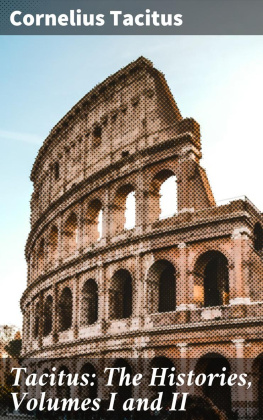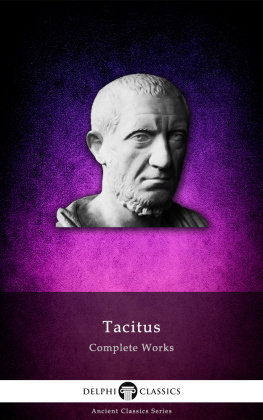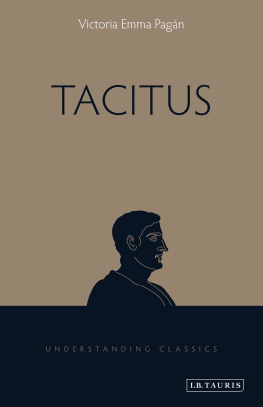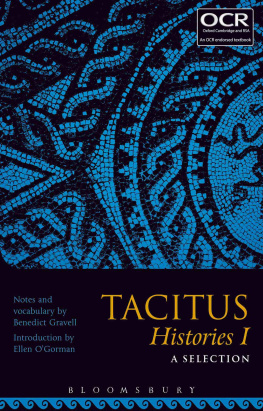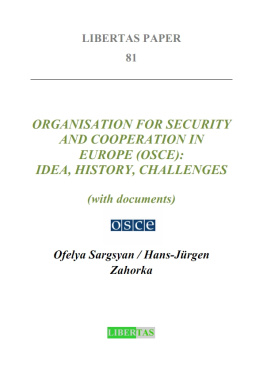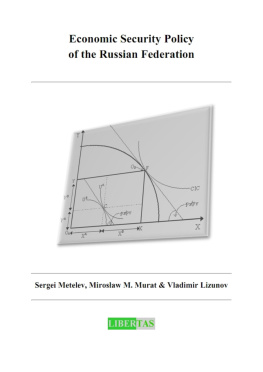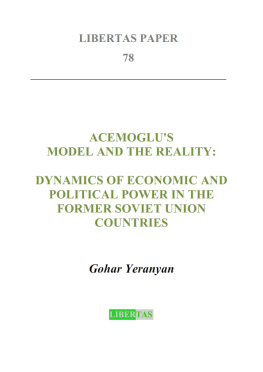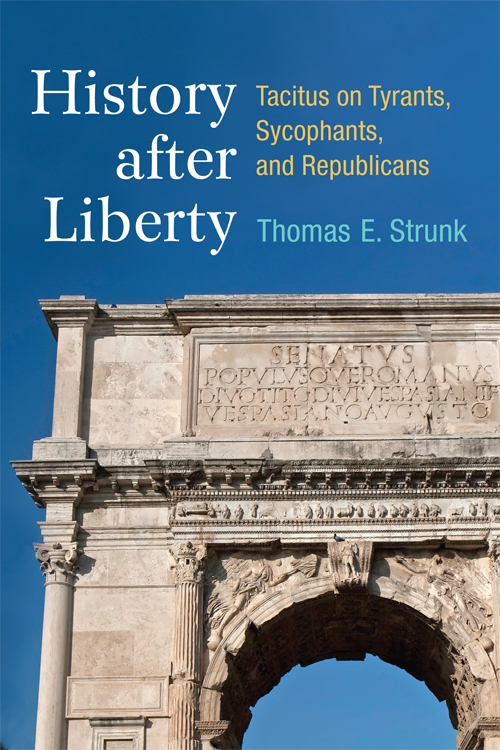
History after Liberty
History after Liberty
Tacitus on Tyrants, Sycophants, and Republicans
Thomas E. Strunk
University of Michigan Press
Ann Arbor
Copyright 2017 by Thomas E. Strunk
All rights reserved
This book may not be reproduced, in whole or in part, including illustrations, in any form (beyond that copying permitted by Sections 107 and 108 of the U.S. Copyright Law and except by reviewers for the public press), without written permission from the publisher.
Published in the United States of America by the
University of Michigan Press
Manufactured in the United States of America
A CIP catalog record for this book is available from the British Library.
Library of Congress Cataloging-in-Publication Data
Names: Strunk, Tom, author.
Title: History after liberty : Tacitus on tyrants, sycophants, and republicans / Thomas E. Strunk.
Description: Ann Arbor : University of Michigan Press, 2016. | Includes bibliographical references and index.
Identifiers: LCCN 2016022323| ISBN 9780472130207 (hardcover : alk. paper) | ISBN 9780472122479 (e-book)
Subjects: LCSH: Tacitus, CorneliusPolitical and social views. | Freedom. | Despotism. | Republicanism. | RomePolitics and government30 B.C.284 A.D.
Classification: LCC PA 6716 . S 77 2016 | DDC 937/.07092dc23
LC record available at https://lccn.loc.gov/2016022323
To my wife Jamie and my daughters Sophia and Victoria
Contents
This book has its origins in one of those halcyon summers of graduate school at Loyola University Chicago when I read Tacitus Annales with James Keenan. Although long summer days alongside Chicagos Lake Michigan and Tacitus jagged prose are incongruous images for the mind to juxtapose, nevertheless, as the summer grew on, Tacitus perceptive political analysis awoke in me a way forward for my academic future. A book that has had such a long gestation requires not only an expression of thanks but deep gratitude from its author for those who have supported it along the way.
Professors James Keenan, John Makowski, and Jaqueline Long not only read multiple drafts of the dissertation that forms the basis of this monograph but they also, along with Professors Brian Lavelle and Greg Dobrov, nourished me intellectually through our many graduate classes together. Moreover, they taught me to be a professional scholar and teacher and to stand up with integrity for what we value. I also need to thank my former peers Peter DeRousse and Colin McQuillan for hours of stimulating discussion on Tacitus and political philosophy. My first Latin and Roman history professors at Pennsylvania State University, Paul Harvey, Stephen Wheeler, Daniel Frankfurter, and Allan Kershaw, provided a strong foundation for carrying my research to this point. Allan Kershaw also deserves special thanks for his enduring friendship.
I must also recognize my colleagues at Xavier University who have greatly supported my work. I am especially grateful for the support of Shannon Byrne, who has allowed me to teach numerous Latin seminars on Tacitus and Roman historiography. I would also like to thank the students in those classes for their hard work and intellectual curiosity. In addition, Shannon Hogue, Rebecca Muich, David Everson, and Bryan Norton, S.J., have provided more support to this endeavor than they realize. My research has benefited from a Faculty Research Leave and two Summer Research Fellowships from Xavier University. I have also worked with several research assistants, who have greatly furthered my work: Evan Ward, Sean Tulley, Clayton Schroer, Patrick McBride, John Appeldorn, and Ayana Rowe. An early draft of this manuscript was graciously read by Jonathan Zarecki, James Keenan, and Daniel Kapust. Their helpful and honest comments improved the writing and scholarship of the manuscript.
My sincere thanks also go to Ellen Bauerle and her colleagues at the University of Michigan Press. Ellen has been a mentor throughout the publication process and a patient supporter of my manuscript. Kevin Rennells, Susan Cronin, and John Raymond were also very helpful in editing the text and moving it through the publication process. I thank the anonymous referees for their thoughtful and challenging comments; the book has benefited greatly from their careful reading. All of those mentioned above deserve much credit for whatever virtues this book may have; any faults reside with the author alone.
Most kids who grow up in Appalachian trailer parks do not go on to college, earn PhDs, and write books. This one did. I must thank my parents, Gail and Tom Strunk, for their support of my education. They worked long hours at difficult jobs, so that I could have the privilege to sit in peaceful libraries, travel abroad, and study ancient languages. For that sacrifice, no words are sufficient. My sister Tammy and her family have been a model of endurance. Don and Marlys Leslie also deserve sincere thanks.
Lastly, I reserve my most heartfelt thanks for my wife, Jamie Leslie, and our daughters, Sophia and Victoria. They know most of all the long hours that have gone into this book. Their support and willingness to make sacrifices on my behalf are most gratefully appreciated.
History after Libertas
The Historian of Discontinuity
The Roman Principate has recently been described as a fact, beyond deliberation and a conceptual prison constructed around the Roman mind. Certainly, the Principate established by Augustus became a historical fact, an autocracy without end. Yet the suggestion that no one was capable of imagining life without a princeps or the Principate is too tidy an explanation and does not hold up in the face of Tacitus historical writings. For Tacitus illustrates that many Romans were not only quite aware of the changes wrought by the advent of the Principate but also had the will to challenge it. Most of all, this book is an argument that Tacitus himself was neither hindered by imagination nor shackled by the Principate in his political thought.
The first step for Tacitus in breaking out of the conceptual prison of the One could rightly ask what was left of the political system of the Republic.
Tacitus emphasizes the fissures between Republic and Principate, not to show that the Republic is dead, but to show that the Principate is no republic. In his writings, he continually draws the distinction between the Republics past and the Principates present, above all in his prologues. Nonetheless, in his prefaces Tacitus draws a sharp line between the politics and the authors of the Republic and those of the Principate. He thereby creates a discontinuity between libertas and principatus.
Although Tacitus concedes that Nerva reconciled the conflict between libertas and principatus (Ag. 3.1) and that the reign of Trajan was a time when one could think what one wanted and say what one thought (Hist. 1.1.4, sentire quae velis et quae sentias dicere licet), he does not go on to write a triumphalist history of his own times, as he once suggests. Accordingly, Tacitus repeated efforts to highlight the discontinuity between Republic and Principate are an attempt to reveal the autocracy of the Principate and to emphasize that he is a historian writing after the fall of libertas.
Reading the Politics of Tacitus
Tacitus was not a subversive politician. No act of political daring that would have imperiled his life can be attributed to him. His political career is indicative of successful Roman politicians under both the Republic and the Principate.
Next page

